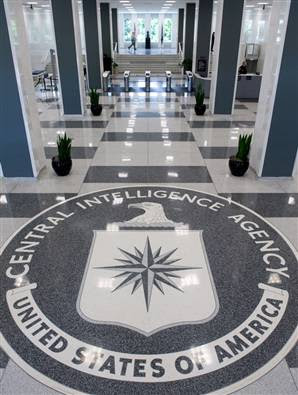 When the CIA revive a plan to kill or capture terrorists in 2004, the company turned to good relations with a security company called Blackwater USA.With Blackwater's lucrative government security work and contacts arrayed in hot spots around the world, company officials offered the services of foreigners supposedly skilled at tracking terrorists in lawless regions and countries where the CIA had no working relationships with the government.
When the CIA revive a plan to kill or capture terrorists in 2004, the company turned to good relations with a security company called Blackwater USA.With Blackwater's lucrative government security work and contacts arrayed in hot spots around the world, company officials offered the services of foreigners supposedly skilled at tracking terrorists in lawless regions and countries where the CIA had no working relationships with the government.
The former senior CIA official said he had doubts during his tenure about whether Blackwater's foreign recruits had mastered the necessary skills to pull off such a high-stakes operation. Blackwater's later hiring of several senior CIA officials who were involved in or aware of the secret program, including one of the men who ran the operation, showed the blurred lines of using a private contractor for such a highly classified and dangerous project.
"The question remains: Why do we need Blackwater?" said Charles Faddis, a former department chief at the CIA's Counterterrorism Center who retired in 2008 and was not involved in the secret program. "I remain mystified. This is quintessential CIA work. You wonder what it means that the CIA has to rely on Blackwater? Why are we still funding the CIA?"
The CIA started planning for its death squad project shortly after the attacks of Sept. 11, 2001. The agency wanted the ability to target terrorists at close range, providing an alternative to air strikes that ran the risk of accidentally killing civilians.
Xe spokeswoman Stacy DeLuke did not respond to questions seeking comment. Blackwater altered its corporate name to Xe Services after a series of use-of-force controversies, including a September 2007 shooting in Baghdad by five company security guards that left 17 civilians dead.
The operation was revived under Tenet's successor, Porter Goss, who ran the agency from 2004 to 2006. Michael Hayden, who served from 2006 to 2009, downgraded the program to intelligence-gathering only. Leon Panetta, the current director, killed the operation in June.
At the time that Blackwater began working with the CIA on the death squad operation in 2004, the CIA had in place a long-standing policy mandating that senior officials leaving the agency could not go to work for private firms for a year after their departure. In 2007, Hayden toughened requirements for the entire agency, mandating an 18-month hold on security clearances for all departing employees who leave prior to retirement.
The former senior CIA official said that during his tenure it was unlikely that the Blackwater recruits would have been involved directly in the mechanics of the killings. Instead, they were learning how to spy on targets and operate discreetly.


